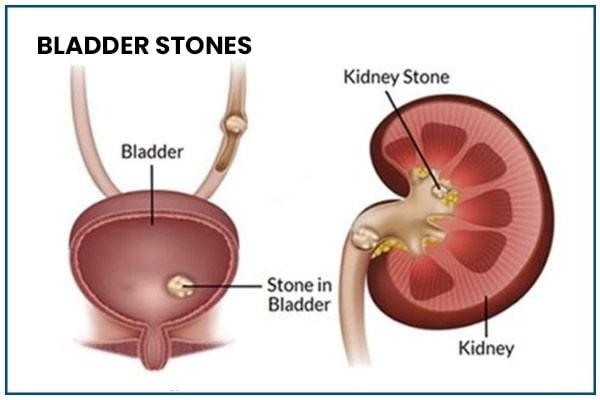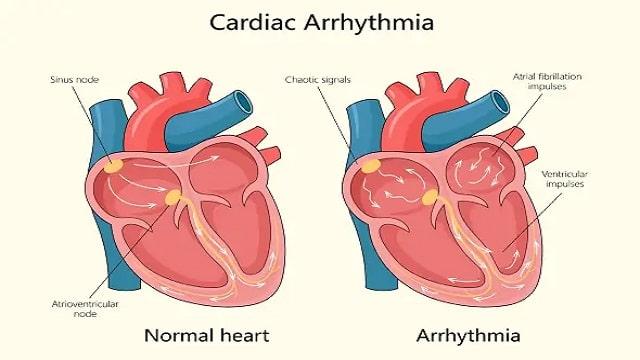
Bladder Stones Symptoms, Risk Factors & Treatment | Diseases List A-Z
Bladder Stones Bladder stones or bladder calculi are stones that form from mineral deposits in the bladder.
Everyone is actually at risk of having them.
However, men over the age of 50 are at higher risk of experiencing it.
Especially for men who have an enlarged prostate.
As for bladder calculi, they can block the urinary tract and cause pain when urinating, difficulty urinating or not being able to urinate at all.
If not treated immediately, these stones have the potential to cause infection and complications.
Treatment of this condition usually requires medical assistance.
However, if the stone is small, bladder calculi can come out with urine.
Symptoms of Bladder Stones Some bladder calculi pass out of the body in the urine and do not cause any symptoms.
However, large bladder stones can irritate the bladder and cause severe pain, bleeding, and problems urinating.
Signs and symptoms include: Changes in urine color.
The sufferer may have cloudy or dark urine or may see blood in the urine.
Frequent urination.
You may feel like you always need to urinate, even if you just went.
Pain.
With stones, there is usually pain or burning when urinating.
You may also feel pain that comes and goes in the lower abdomen.
In men, sometimes the pain will be felt in the penis or testicles.
Stopping and starting.
You may have trouble starting a urine stream, even when you really need to go.
Sometimes the urine stream stops and starts (intermittent urination).
Urinary tract infection.
These stones can cause urinary tract infections (UTIs).
Symptoms of a UTI include frequent, painful urination and cloudy, smelly urine.
However, you need to understand that bladder stones and urinary tract infections are two different conditions.
Risk Factors for Bladder Stones Men, especially those over 50, are more likely to have bladder stones.
Other conditions that can also increase the risk include: Obstruction of urine flow.
Any condition that blocks the flow of urine from the bladder to the urethra, the tube that carries urine out of the body, can lead to the formation of bladder calculi.
There are several causes, but the most common is an enlarged prostate.
Nerve damage.
Stroke, spinal cord injury, Parkinson’s disease, diabetes, herniated disks, and a number of other problems can damage the nerves that control bladder function.
A person is also at risk for nerve damage and conditions that cause bladder outlet obstruction.
These conditions will further increase the risk of stones.
Causes of Bladder Stones This condition can develop when the bladder does not empty completely.
This condition causes the urine to become concentrated.
Concentrated urine can crystallize and form stones.
Some infections can cause bladder stones to form.
Sometimes underlying conditions that affect the bladder’s ability to hold, store, or excrete urine can also lead to the formation of bladder calculi.
Any foreign material present in the bladder is likely to cause bladder stones.
The most common conditions that cause this condition include: 1.
Prostate Gland Enlargement An enlarged prostate ( benign prostatic hyperplasia or BPH) can cause bladder calculi in men.
An enlarged prostate can block the flow of urine, preventing the bladder from emptying completely.
2.
Damaged Nerves Normally, nerves carry messages from the brain to the bladder muscles, directing them to tighten or relax.
If these nerves are damaged, either by stroke, spinal cord injury, or other health problems, the bladder may not empty completely.
Another term for this condition is neurogenic bladder.
3.
Inflammation of the bladder This condition sometimes occurs due to urinary tract infections or radiation therapy to the pelvis, can cause bladder calculi .
4.
Use of medical devices The use of a bladder catheter through the urethra to help urine drain from the bladder can cause stones to form.
So can objects that accidentally migrate into the bladder.
Examples include contraceptive devices or urinary stents.
Mineral crystals, which later become stones, tend to form on the surface of these devices.
5.
Suffering from kidney stones Stones that form in the kidneys are not the same as bladder stones.
But small kidney stones can travel down the ureter to the bladder and grow into stones.
Bladder Stone Diagnosis To diagnose this disease, your doctor may need one or a combination of the following tests: Physical exam.
The doctor may place his or her hand on the person’s lower abdomen to feel for an enlarged bladder.
Urine Test.
Your doctor may need a urine sample to check for signs of blood, bacteria, and crystallized minerals.
CT Scan.
This scan combines several X-ray images to show internal organs in detail.
In addition to detecting stones, CT scans can also be useful for detecting a number of other health problems.
Ultrasonography.
Produces images by bouncing sound off internal organs.
Intravenous pyelogram.
This procedure involves injecting a special fluid into a vein that will drain to the kidneys and bladder.
The doctor will then use X-rays to look for signs of kidney stones.
Bladder Stone Treatment If the size of the bladder stone is quite small, then treatment is sufficient by drinking 1200 milliliters of water per day.
The goal is to help the stone pass naturally with urine.
However, if the size is large enough, the doctor can perform the following medical procedures: Cystolitholapaxy.
In this procedure, the doctor will crush the stones in the bladder into small pieces using a laser, ultrasound, or mechanical means.
Once the stones are small, they will be easier to pass along with the urine.
Surgery.
This procedure may be an option if the stone is too large and too hard to pass by cystolitholapaxy.
Bladder Stone Complications Although some cases of bladder are asymptomatic, it does not mean that you should take this health condition lightly.
Because, without proper treatment, this condition can cause the following two main complications: Chronic bladder dysfunction.
This condition is characterized by increased frequency of urination along with pain during urination.
Sometimes, bladder calculi can completely block urine from leaving the body.
Urinary tract infection.
This infection can recur and therefore requires proper treatment.
Because, if ignored, this condition is dangerous to health.
Well, more complete information about the dangers, Bladder Stone Prevention Bladder stones are usually the result of an underlying condition that is difficult to prevent.
However, anyone can reduce their chances of developing bladder stones by following these tips: Check for unusual urinary symptoms.
Early diagnosis and treatment of prostate enlargement or other urological conditions can reduce the risk of developing these conditions.
Drink plenty of fluids.
Drinking more fluids, especially water, can help prevent stones from forming.
This is because fluids dilute the concentration of minerals in the bladder.
How much water you should drink will depend on your age, size, health, and activity level.
.
Related Articles
health
Aquaphobia Symptoms, Risk Factors & Treatment | Diseases List A-Z
October 22, 2024

Aquaphobia is a type of specific phobia that is an irrational fear of something that does not pose much danger.
A person with aquaphobia has extreme fear or anxiety when thinking about or seeing water.
read morehealth
Arrhythmia Symptoms, Risk Factors & Treatment | Diseases List A-Z
October 22, 2024

Electrolyte imbalance in the blood.
Electrolyte levels, such as potassium, sodium, calcium, and magnesium can interfere with the heart’s electrical impulses, resulting in arrhythmias Drug use.
read morehealth
South Africa: Over 40 students hospitalised for suspected food poisoning
October 23, 2024

The information contained in this website is for general information purposes only.
The information is provided by BhaskarLive.
read more